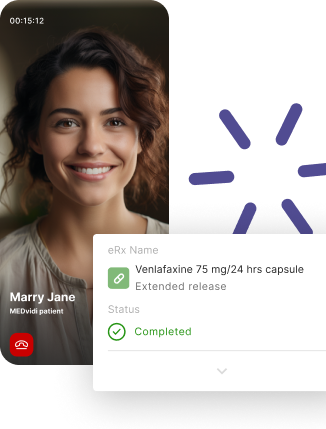Highlights
- Rejection-sensitive dysphoria is not a mental disorder but a term for profound turmoil in response to intense feelings, usually to perceived rejection.
- The core symptoms of rejection-sensitive dysphoria are overwhelming emotional and physical pain.
- Emotional dysregulation, which means not having control of emotions in a usual way, can result in rejection-sensitive dysphoria in people with existing mental health conditions.
- Individuals with ADHD often experience rejection-sensitive dysphoria.
It is terrible to be rejected, and we’ve all experienced it: a turned-down college or job application or the person of our dreams refusing a movie date. You feel hurt and gloomy for a while, and then, generally, it passes. But for some people, the aftermath of rejection hangs around and affects their lives. Let’s look at when and why this might happen.
Understanding Rejection-Sensitive Dysphoria (RSD)
Emotional Dysregulation
Firstly, it is essential to understand the term emotional dysregulation. This might sound complicated, but all it means is
Rejection Sensitivity
Secondly, rejection sensitivity is an exaggerated response to perceived or actual rejection.
- Expecting rejection and feeling unusually nervous because of fear of failure.
- Being overly sensitive and feeling rejected because of misinterpreting actions or comments.
- Overreacting to the rejection with emotional outbursts.
Rejection sensitivity is usually short-lived, but there is a drawn-out version that leaves the person in a state of turmoil and emotional pain, bringing us to the article’s topic.
Rejection-Sensitive Dysphoria
What is rejection-sensitive dysphoria (RSD)?
Rejection-sensitive dysphoria is an intense, drawn-out overreaction, usually to a perceived rejection. Dysphoria is a state of unease or turmoil, and this is what makes RSD different from rejection sensitivity.
Rejection-sensitive dysphoria = rejection sensitivity + dysphoria
Recently, a study described the following
- The person broods or stews over unwanted and distressing emotions. They can’t let go.
- They self-blame.
- The reaction is not appropriate.
- The person feels out of control.
- The person’s emotional pain and distress manifest physically.
Importantly, RSD is not an official psychiatric diagnosis or mental disorder but a term to describe a group of reactions, experiences, and symptoms.
Now that you know what RSD is, let’s discuss its triggers.
Causes and Triggers of RSD
Triggers
Remember that trigger situations involve rejection that isn’t real and is usually related to social exclusion or negative feedback.
Let’s look at some
- One person felt rejected because their friend was hanging out with someone else. They knew this was an unreasonable response because, of course, the friend would have other friends.
- Another jokingly asked their boyfriend to come to work with them even though he had other plans. When he said no, they felt rejected, which made no sense as they knew it was unrealistic.
- After getting feedback about a small mistake at work, a third person felt so overwhelmed that they believed they would get fired.
Commonly, the person understands that it is irrational to be feeling rejected in these situations but can’t help it.
So, why do the extreme reactions happen in RSD?
Causes
The truth is that no one is sure what the causes of rejection-sensitive dysphoria are, but there are theories.
- Differences in brain structure: One thought is that
differences in the prefrontal cortex of the brain[4] that are needed for normal goal-directed behavior are different in people who experience rejection-sensitive dysphoria. This is based on the association of RSD with ADHD. - A fight-flight-freeze-response to rejection: The human brain and nervous system are wired to save you from danger. These imagined rejections could be
falsely seen as threats[5] ; therefore, RSD is possibly a manifestation of this rescue response. Although people mostly keep these rejection responses to themselves, this might result in a pressure cooker effect with sudden emotional changes,0 to 100 in response to[3] intense feelings, a need to escape, or numbness. - Developing brain structure: The brain only fine-tunes planning, prioritizing, and making good decisions
in the mid-to-late 20s[6] . Therefore, young adults and children are more likely to overreact emotionally, but might carry these programmed reactions into adulthood.
These are just theories, and more research is needed.
Signs and Symptoms of Rejection-Sensitive Dysphoria
One triggered event in RSD generally has long-lasting and extreme consequences for the individual; the symptoms of rejection-sensitive dysphoria can be emotional and physical.
Emotional symptoms present as:
- Low self-esteem and negative self-talk
- Extreme sadness
- Severe anxiety
- Self-consciousness due to perceived failure
- Negative thought patterns about life in general
- Inappropriate emotional responses, such as outbursts of anger
Generally, the individual understands they are overreacting, which fuels the spiral of emotional distress. This may lead to overwhelming emotional ‘pain’ and present physically. Below are some examples:
- Physical pain, such as chest pain, stomach ache, headache, or backache.
- Physical sensations like nausea, blurred vision, dizziness, or extreme tiredness.
“It’s a literal pain for me. I literally feel it in my chest, and it hurts. I’ll sit and think about it for an extremely long time and nit-pick it and replay it over and over again…” This is how an
How RSD and ADHD Are Connected
Often, attention deficit hyperactivity disorder (ADHD) and RSD go hand in hand; why? Honestly, it is not one hundred percent clear.
Children with ADHD, especially before diagnosis, tend to not fit in well with their schoolmates because of hyperactive behavior or poor school performance and often receive negative feedback.
These childhood experiences might lead to a heightened sensitivity to rejection and predispose people with ADHD to RSD. Some
Another reason people with ADHD might be likely to experience RSD is because
Lastly, ADHD rejection sensitivity might be related to the

How to get tested for ADHD?


Connection Between RSD and Mood Disorders
Because RSD results from poor emotional regulation, one possibility is that it could also occur in mood disorders such as major depressive disorder (MDD) and generalized anxiety disorder (GAD). The opposite is also true; rejection-sensitive individuals are at risk for depression.
Ultimately, even though there is an association, more research is needed on RSD and mood disorders.
Impact of RSD on Daily Life
The extreme symptoms of RSD due to perceived failures and social rejection will impact the person’s daily functioning in the following ways.
- They isolate themselves at home and work.
- They avoid group events because of social anxiety, fear of rejection, and low self-esteem.
- They fall into a pattern of people-pleasing in an attempt to avoid rejection. This may result in overworking or staying in abusive relationships.
- They find that romantic relationships are complicated due to jealous tendencies.
- They visit doctors repeatedly and take sick leave due to physical symptoms of RSD.
This is why it is important to consult with a healthcare provider early to avoid or minimize these unwanted and unhealthy situations.

Testing for RSD
As mentioned, rejection-sensitive dysphoria is not a diagnosis but can co-occur with other mental health conditions. Although this is most commonly a neurodevelopmental disorder like ADHD or autistic spectrum disorder (ASD), it might also be depression, anxiety, and
As a result, it is the underlying mental health condition that needs to be diagnosed and treated.
Treatments for Rejection Sensitive Dysphoria
Your healthcare professional will guide you on how to fix rejection-sensitive dysphoria based on the details of your assessment. This treatment plan will address the co-existing mental health condition while taking the manifestation of RSD into account. Usually, the baseline approach will involve formal therapy, self-help advice, and support.
Therapeutic Approaches
Psychotherapy
Talk therapy will be essential for managing RSD, helping the individual with underlying sensitivity to rejection, their poor emotional regulation, and understanding what dysphoria means. Self-awareness is the key, and this will only be possible through psychotherapy.
For many people, just knowing there is a term for what they are experiencing makes a difference.
Understanding and recognizing RSD patterns helps them to:
- implement self-help techniques,
- stop brooding over unwanted, inappropriate emotions and
- break the self-blame cycle.
Cognitive-behavioral therapy (CBT), a talk therapy, helps change how people think, feel, and act by identifying unwanted thoughts and emotions, processing them, and decreasing reflex behaviors.
Family and relationship therapy may be necessary; educating loved ones about RSD and the co-existing condition can make a difference as they understand where the behavior stems from. The loved ones can also help the person with RSD recognize behaviors and prevent escalation by adjusting their own responses.
Support Groups and Community Resources
Other people with RSD or its co-existing mental health disorder know what the person is going through. Support groups provide constructive feedback and information on how to cope with rejection-sensitive dysphoria.
Depending on symptoms, the healthcare professional will decide if medication is needed to support the psychological support strategies.
Medications
As there are no specific prescription medications for rejection-sensitive dysphoria, a healthcare provider may choose one for the co-existing condition. For example, treating ADHD will be the priority if this is the formal diagnosis; stimulant medications are usually first-line, but the doctor might choose non-stimulants or a class called alpha-2 receptor blockers if that is more appropriate to the particular person’s symptoms.
If the RSD is the result of a person’s
“Off-Label” Medication
In RSD patients who don’t have attention deficit hyperactivity disorder, ADHD medication, especially stimulant medications and alpha-2 receptor blockers, may still be used “off-label” to treat rejection-sensitive dysphoria as they have been shown to help with the symptoms.
Monoamine oxidase inhibitors, a class of medication used to treat depression, have also been used “off-label” to manage RSD. However, these are rarely used anymore, even for depression, because of severe drug and food interactions. For example, they can interact with ADHD stimulants, which can cause life-threatening spikes in blood pressure.
Self-Help Strategies
It is important to learn how to deal with rejection-sensitive dysphoria when you are away from support; however, it is often easier said than done with RSD. Self-help strategies should always be used as an add-on to psychotherapy, medication, or both.
Role of Mindfulness and Emotional Regulation Techniques
Methods that help to control emotions and restore well-being might be helpful in situations where feelings are overwhelming and the fight-flight response is active.
Mindfulness Meditation
Mindfulness means paying attention, in a particular way:
- on purpose,
- in the present moment, and
- non-judgmentally.
Breathing Techniques
Diaphragmatic breathing involves:
- Taking a deep breath through the nose, ensuring that the diaphragm (the muscle that separates the chest from the abdominal cavity) flattens, and the tummy lifts and expands.
- Holding that breath for a moment.
- Forcing the full breath out through the mouth by squeezing the belly in.
- Stopping here and holding again before the next breath in.
The easiest way to practice this is the 4-4-4-4 or box technique. Start by breathing in for four seconds, pausing for four seconds, breathing out for four seconds, finally pausing for four seconds, and repeating this cycle four times.
Relaxation Techniques
Body scan relaxation techniques might also break the RSD intensity and restore a sense of emotional well-being, especially if physical pain is involved. It starts with the toes; the person consciously relaxes them, then moves up the body from part to part, doing the same, and ending with the head and neck.
Coping Mechanisms for Managing RSD in Relationships
Having a healthy relationship if you have RSD is difficult, and communication is critical; both partners need to understand what RSD is. When stressful situations arise, it is important to talk about them and ask questions that clear up the misinterpreted rejection. Talking deepens trust.
- S – Stop
- T – Take a breath
- O – Observe
- P – Pull back
- P – Practice what works
This CBT technique can control intense emotions and prevent unwanted reactions from happening in the moment.
Lastly, some advice from people living with RSD;
In Summary: Navigating Life with RSD
It is possible to manage rejection sensitivity dysphoria and live a fulfilling life. The first step is to book a consultation with a healthcare provider to go through an assessment because RSD always co-exists with a mental health condition, often ADHD, that needs a formal diagnosis.
Although no official RSD treatment exists, a provider will individualize a treatment plan based on the underlying condition.











